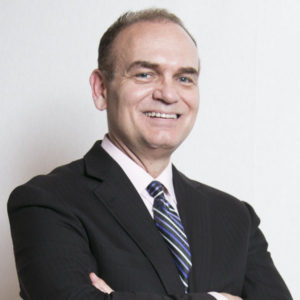Filler words, such as um and uh, are never included in speeches and have no purpose when used by a speaker. However, most speakers make these pernicious grammatical errors every day in most conversations.

What is attainable? Is there no hope? In this post, we will look at why using filler words reduces your efficacy and teach you a five-step plan for doing so.
Um… What Is the Issue?
When it comes to filler words, some people have a strict no-tolerance attitude because they think a few of them can destroy the delivery and undermine an otherwise strong speech.
I do not belong to that group. A fantastic message and some filler words here and there do not outweigh passion. In addition, I have heard audience members say that a filler word here and there makes the speaker feel personable (and not robotic).
However, speakers should try to use fewer filler words. They offer nothing and reduce your effectiveness as a speaker in two ways in particular:
Pro Tip
Practice in a formal setting.
- Filler words are linguistic static that your listener must filter out. (Guest author Stacey Hanke mentions it as one of the communication difficulties in a recent essay.) Why express it if the listeners will just ignore it right away?
- Filler words must not be used frequently or excessively to damage your trustworthiness. It could be interpreted as a sign of unpreparedness, ignorance, or lack of enthusiasm. These are all harmful perceptions for you.
Words, sounds, and phrases that are unnecessary

I have referred to three related speech fillers as “filler words” collectively throughout this essay, but this is just a handy abbreviation:
- Filler Sounds, including um, uh, ah, and mm
- Filler Words: actually, Filler Phrases: you know, what I am trying to express, "I think that"
These all add nothing and might be fully removed from your speech patterns without any loss of meaning. There are more in each category as well.

Step 4A: Go more slowly.

Slowing down will also help you speak more clearly because it will be simpler for your brain to follow along. It does not have to be a big shift; even a slight slowing down of the pace will be beneficial. Additionally, speaking a little more slowly will help your listeners comprehend you.
It would be best if you were realistic about your time limits and the amount of material you must accomplish this. To finish their presentation on time, speakers must talk more quickly as they cram in more content. Resist the urge to do this.
Step 4B: Enjoy the silence.

Simply pausing is the best tip I have ever heard for cutting down on us and has. Leave the filler word(s) out and be silent. It will take some practice to become used to using silence instead of filler words since you have grown accustomed to using them. If you commit to the change, it will take place.
[Note: There are occasional instances where certain words or sentences do transmit meaning, but these are uncommon.]
Action Item
Make sure to practice speaking and record yourself.
A Technique for Cutting Filler Words from Speech
I wish there were an option to remove these words from a speaker’s lexicon by flipping a switch. (I would pull the plug for myself!) Here are the actions I advise taking to reduce these fillers because the magic switch is difficult to find.
Determine how frequently you use filler words in the first step.

You should evaluate how often you use filler terms in your presentations before starting a campaign to eliminate them. There are three simple methods for doing this:
- Recruit a spectator to follow it and offer commentary. Ask them to comment on the impact in addition to providing a tally of all the fillers utilized.
- Analyze your voice after recording it objectively. I occasionally use a digital voice recorder for this. You may do this invisibly for almost any speech you give.
- Videotape your own performance. This is little more intrusive but offers greater advantages. You receive spoken feedback, but you also get to observe your facial expressions and the changes in your eyes as you are, uh, filling in words.
The following questions are your assessment’s primary focus:
- How frequently do you use filler words?
- Are they annoying?
- Do they threaten your reputation?
- Understand why you are doing it and why it is not necessary in step two.

Filler words, also known as filler, sounds, words, and phrases, are used when our mouth and brain need a moment to catch up. Filler words may occasionally have a little function.
A filler word in a phone conversation, for instance, signals to the other party, “I’m still thinking, and I’m not willing to transfer the conversation back to you just yet,” to the other party. The filler word fills in the empty area that would otherwise suggest that you have finished thinking.
However, this is an utterly useless signal in most public speaking scenarios. When you pause for a second, there is no chance that a member of the audience will take over. To indicate that you are pondering, you do not need to fill that area. Your audience will understand if you simply… ponder.
Step 3: Improve your level of planning.

I have noticed that when I am not prepared, I tend to use more filler words. Lack of appropriate planning has two effects:
- Words must be "created" by your brain on the spot rather than being retrieved from (prepared) memory. This puts greater mental load on your brain, increasing the likelihood that you will fall behind.
- Unpreparedness (generally) makes you feel more anxious. Most individuals speak more quickly when they are frightened, which increases the likelihood that your brain will not be able to keep up.
- The significance of getting enough sleep deserves to be mentioned as another part of preparation. Your mind will be sharper, and it will be simpler for you to express your ideas clearly when you are well-rested.
Step 5: Keep an eye on things and be patient.

Take a step back occasionally to evaluate your development. Review the Step 1 assessment tasks and compare the outcomes. Have you cut back on the number of filler words you use?
Have you lessened the detrimental effects that filler words have on your effectiveness? Do you see a connection between being well-prepared and speaking without filler? Have you slowed down?
Are you just stopping while you consider your next words? Thus, the use of filler words will be decreased with adequate preparation (which has many other advantages).







